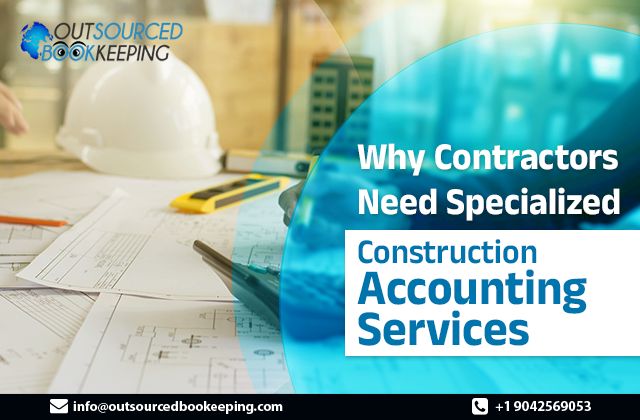Running a construction business is more than just completing projects on time. It is about managing people, materials, costs, and contracts while trying to keep everything profitable. Unlike other businesses, construction involves shifting sites, fluctuating labour, seasonal demand, and long project timelines. That is why regular accounting services often fall short. What contractors need is specialised construction accounting services that are built for the industry’s unique challenges.

The Problem with Generic Accounting
Construction is not like retail or manufacturing. It is not about fixed inventory, predictable billing, or static locations. Every job is different. Every site has its own costs, terms, and schedule. When you try to apply standard accounting to this kind of business, it leads to confusion.
Payments may come in stages. Subcontractors need to be tracked. Labour costs change every week. Material prices fluctuate depending on suppliers and transport. If your accounts cannot keep up, you risk mismanaging cash flow, under-quoting bids, or losing track of overheads.
What Makes Construction Accounting Different?
Construction accounting focuses on job costing, revenue recognition, and project-based reporting. These tools help you track the financial health of each project in real time. Instead of just knowing your total profit at the end of the year, you can see which job is profitable, which one is draining resources, and where your costs are rising. It also involves managing:
● Retainage (withheld payments)
● Progress billing
● Mobilisation and demobilisation costs
● Equipment depreciation
● Labour classification
● Overhead allocation
These are all part of the construction workflow. Missing them in your accounting system leads to poor financial planning and inaccurate reports.
Why Contractors Cannot Rely on DIY Solutions
Some contractors try to manage accounts on their own or rely on basic software. This may work for very small businesses. But as projects get bigger and the number of jobs grows, the margin for error increases.
If you have multiple sites, part-time crews, material orders, and staggered payments, you need clear visibility. Guesswork leads to delays, disputes, and cash shortages. That is where construction business accounting professionals can help.
They know how to structure your books so that each job is tracked separately. They understand how to align your accounting with your project management systems. They can also help you with budgeting, forecasting, and compliance.
The Role of Construction Bookkeeping
Construction bookkeeping services are about maintaining daily records. That means updating job costs, tracking hours, logging supplier invoices, and posting payments. When done right, this gives your accountant real-time data to work with.
Bookkeepers keep your records clean. They make sure receipts are stored, GST filings are accurate, and payroll is handled on time. They also work with your project managers to ensure that site expenses are logged correctly. Good bookkeeping is the foundation of reliable accounting. Without it, even the best reports will be based on incomplete data.
How Specialised Services Help Your Bottom Line
When you partner with experts in construction accounting, you gain more than just reports. You gain insights. These professionals help you:
● Set up cost codes for every task
● Calculate true job profitability
● Track labour efficiency
● Spot early warning signs in cost overruns
● Manage subcontractor payments and tax filings
● Streamline billing and collections
This gives you control. You are no longer reacting to financial issues after the project ends. You can make better decisions during the job itself.
Compliance Matters Too
Construction businesses also deal with contracts, tenders, GST laws, and audit requirements. A small error in tax filing or contract accounting can lead to penalties or project delays. Specialised construction accountants ensure that your books are compliant with local tax regulations.
They also help prepare for audits, submit tenders with accurate financials, and maintain clean records for inspections. This is critical when working with government clients, large contractors, or public infrastructure projects.
Digital Tools Are Changing the Game
Modern construction accounting is not just about ledgers. It is about integrating software, automating payroll, syncing data between the field and the office, and generating dashboards. Good accounting services can recommend the right tools for your business. They can set up systems that save time, reduce errors, and improve transparency. This means you can focus on building while they focus on your books.
Final Thoughts
The construction industry is complex. Your finances do not need to be. With specialised construction accounting services, you get clarity, accuracy, and control. You can track your profits job by job. You can plan for growth. You can avoid the mistakes that come with generic systems.
So, if you want your construction business to run smoothly, it is time to invest in the right accounting partner. One who understands your industry and stands by you through every contract, every challenge, and every project.


